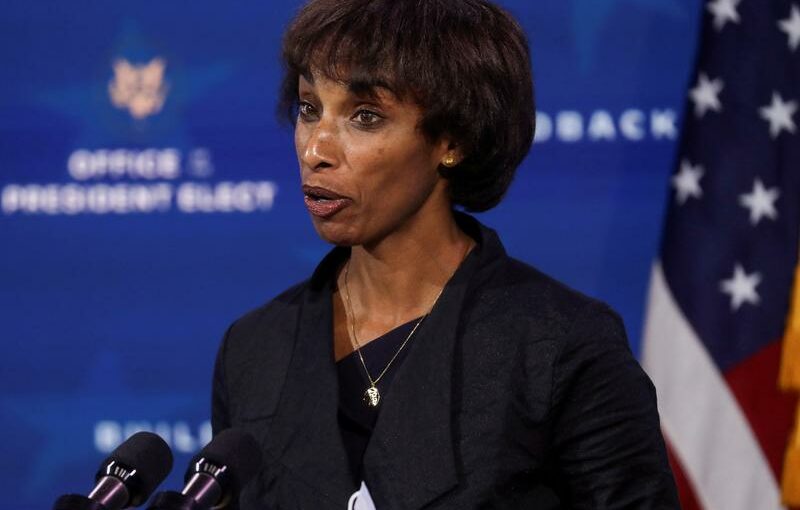WASHINGTON (Reuters) -The United States must invest heavily in its workforce, infrastructure, research and development to remain competitive and stay the world’s largest economy, Cecilia Rouse, chair of the White House Council of Economic Advisers, said on Tuesday.
U.S. investments in R&D had fallen by a third as a percentage of economic output since 1960, while spending on infrastructure had been halved over the last 50 years, Rouse told an online event hosted by the Washington Center for Equitable Growth and Groundwork Collaborative.
She said the United States ranked “dead last” in spending on its workforce, compared to other advanced economies.
U.S. President Joe Biden’s administration won approval for a $1.9 trillion coronavirus rescue plan, and is now working with Congress to ensure passage of a $2.3 trillion infrastructure investment package aimed at creating millions of jobs.
“We have not been making the kind of investment that we know we need to be making if we’re going to really keep up and ensure that our economy is poised to remain No. 1 in the world,” Rouse said, adding that government spending was also required to address broader issues, such as climate change.
She said President Joe Biden also believed that the current situation posed a fundamental test for democracy, and whether the United States could remain competitive in the race with China to develop new technologies.
Biden last month said he would prevent China from passing the United States to become the most powerful country in the world, and remained convinced that democracy – not autocracy – was the key to a succesful future.
“We know that there are these big challenges that are facing us coming forward, and can a democratic or democratically organized country get it together to make the kinds of investments that we need,” she said, “or do you need to go more top-down such as China?”
Source: Read Full Article
